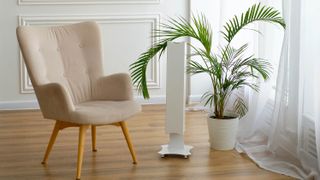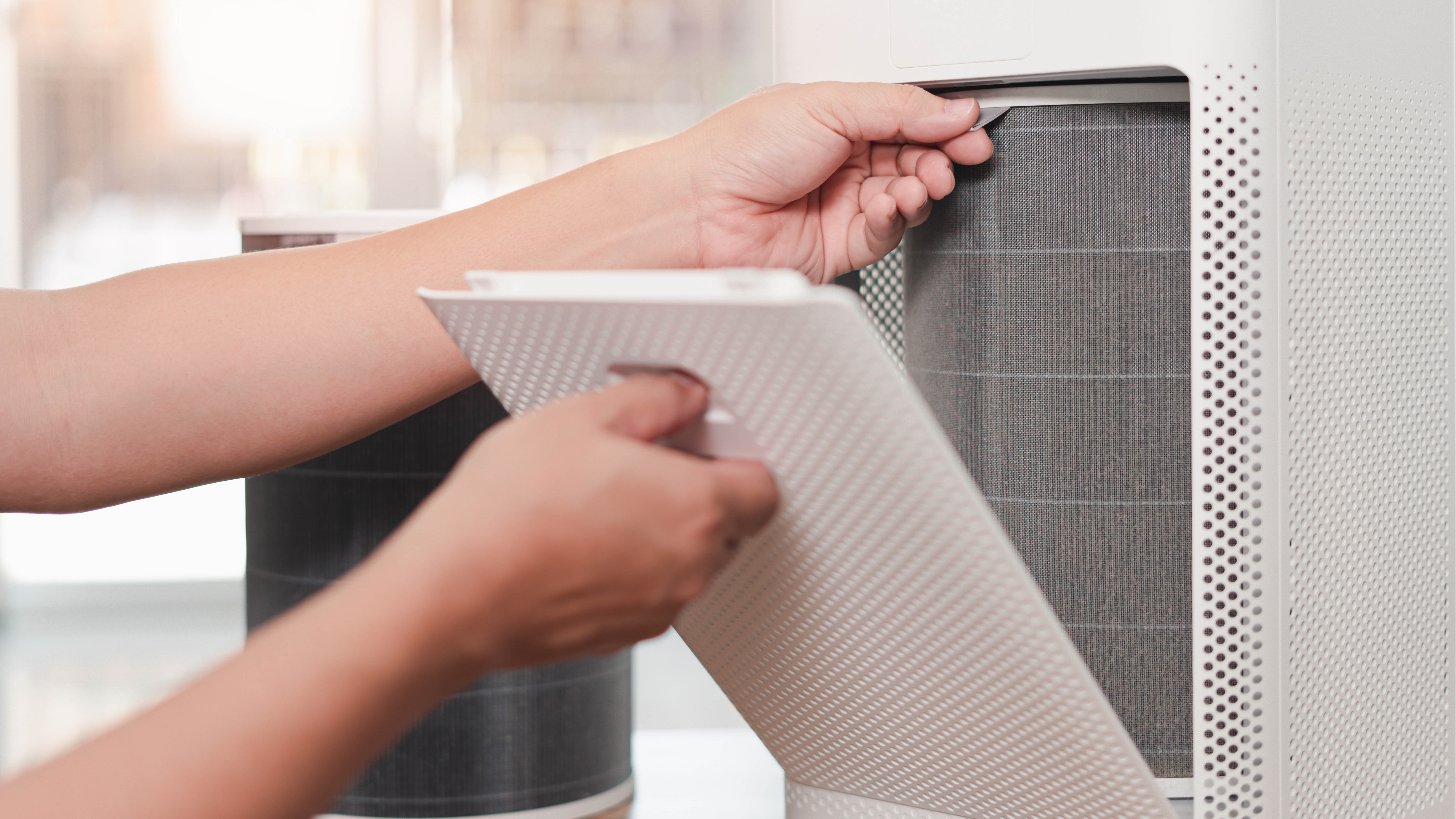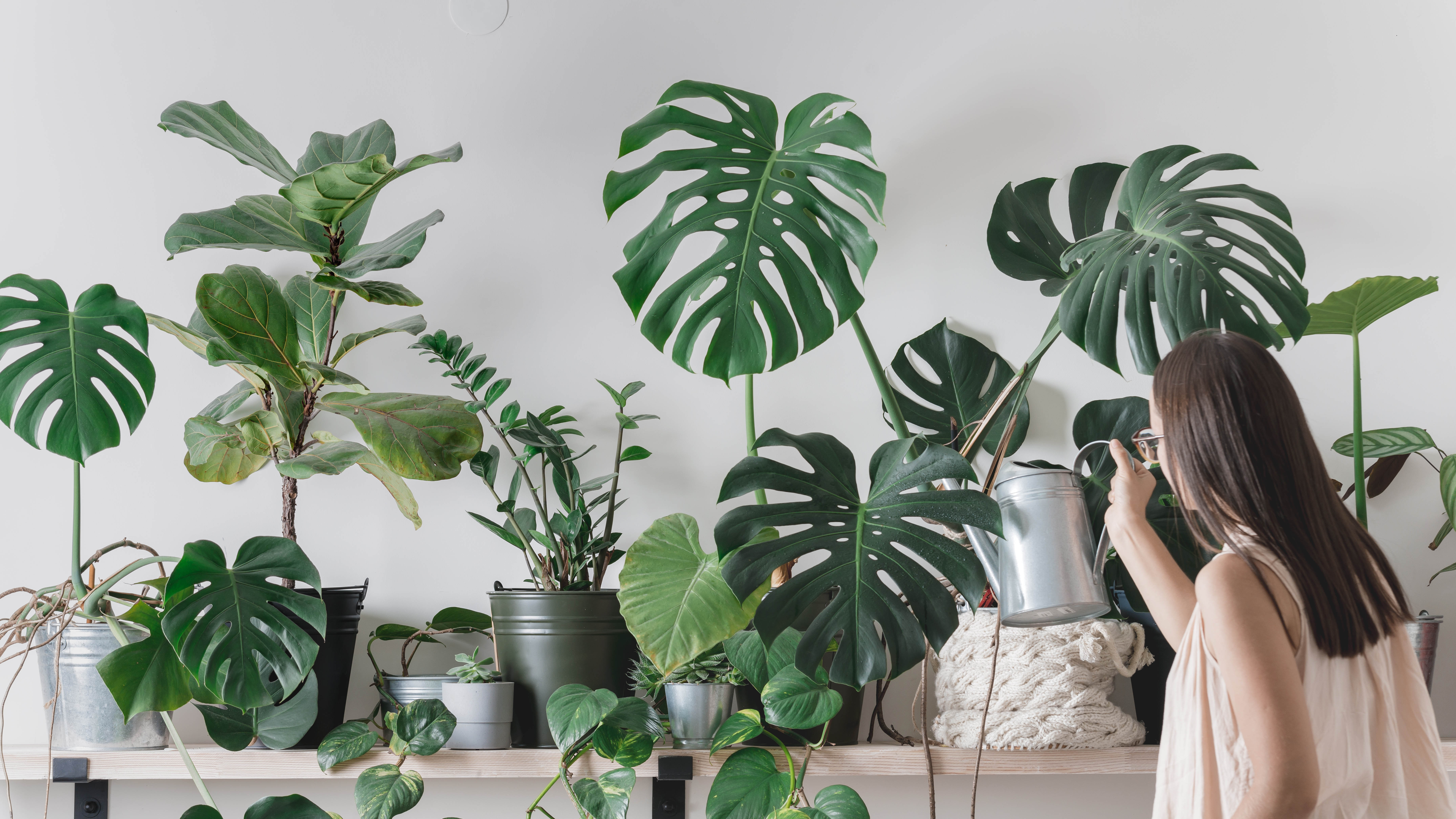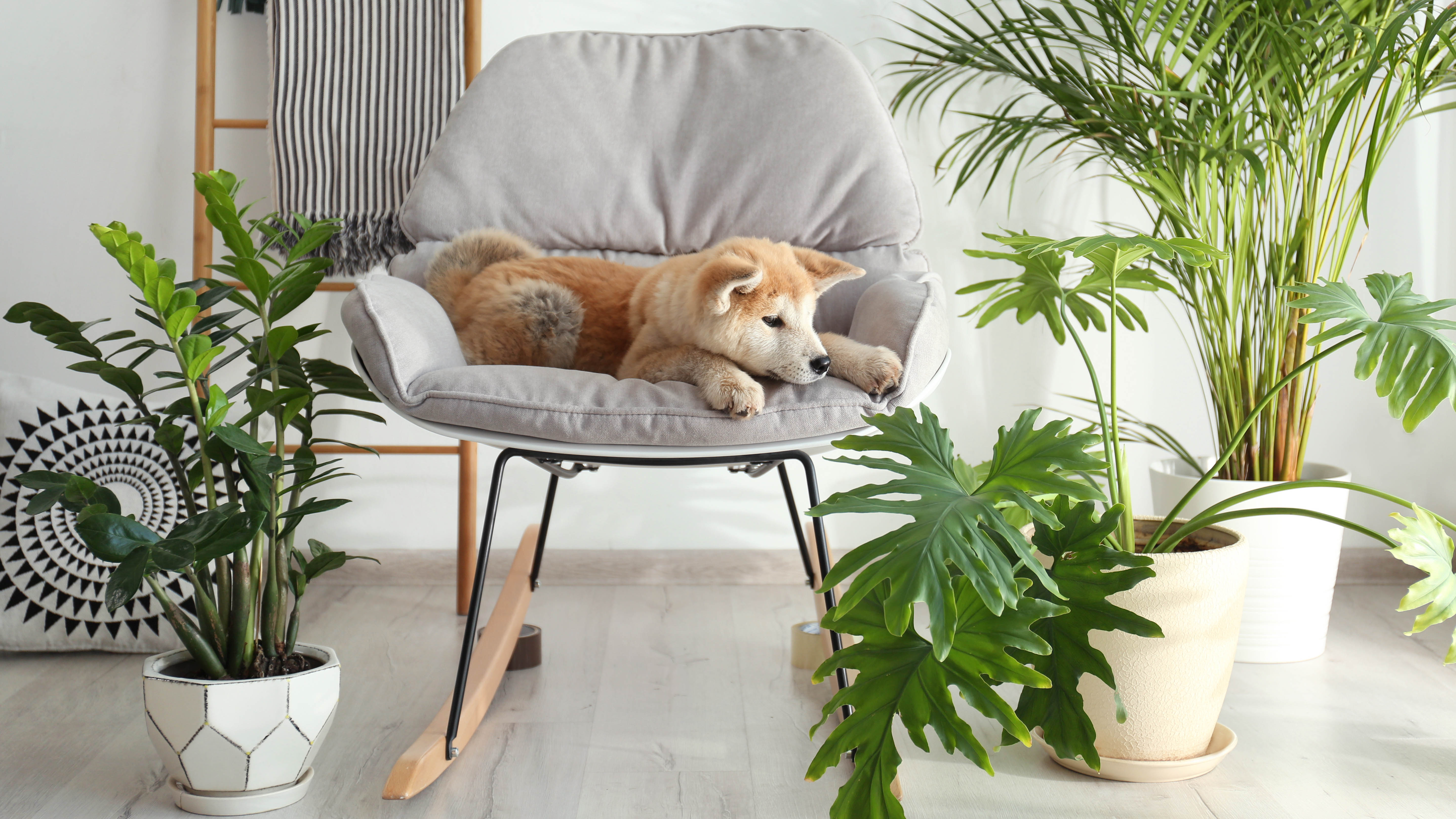Do you need an air purifier if you've got houseplants?
Practise you need an air purifier if you lot've got houseplants?

Have yous always wondered if y'all tin can swap your air purifier for a houseplant? You're not alone.
With some of the best air purifiers costing upwards of $600, an air purifier tin can be a hefty investment for something which isn't ever easy on the optics. An air-purifying plant, on the other hand, is affordable, attractive and actively "breathes" carbon dioxide — but how well does it actually stand up to an air purifier?
Here, nosotros will look into how each works to improve your air and the overall impact it volition have so y'all can decide which is best for y'all.
How does an air purifier work?
If you want to know how air purifiers work, there are actually a few variations on the marketplace. Each of these air-cleaning methods functions differently, and many air filters combine one or more of them.
- HEPA filter — This is arguably the most well-known filtration method. Substantially, the air purifier sucks in air from the room, which then passes through a serial of filters, but most importantly a HEPA filter. A HEPA filter is peculiarly dumbo and will grab very small microbes and pollutants such equally dust, pollen or smoke before recycling the air back into the room.

- Carbon filter — These work in much the same way as a HEPA filter, but contain a carbon-based filter every bit ane of the layers. The benefit of a carbon filter is that information technology's more effective at collecting odors and airborne chemicals.
- UV low-cal — Many air purifiers comprise UV lights that will impale bacteria and viruses that pass through them. Because this method won't get rid of inert airborne particles, information technology'south oftentimes used in addition to HEPA and/or carbon filters.
- Negative ions — An ionic air purifier works differently from the other methods in that it sends out negative ions which magnetically attract any particles in the air. Once they're heavy enough, these ionized particles then drib to the footing or attach to surfaces, which and so in turn demand to be cleaned. Some ionic air purifiers create ozone, which can harm the lungs of children or the elderly.
How do air-purifying plants piece of work?
Houseplants will naturally absorb carbon dioxide from the air via photosynthesis. During this process, the establish will convert light, carbon dioxide and h2o into carbohydrates, which the plant needs to live. Oxygen is then generated equally a by-product and released for usa to exhale.

In 1989, NASA ran an experiment which found that plants blot volatile organic compounds (VOCs) from the air using their leaves and roots. VOCs such as benzene, toluene and formaldehyde, to proper name a few, tin be absorbed.
Such gases are emitted from products such equally paint, building materials and cosmetics, so they're more common than you'd think around the domicile. When you smell nail-shine remover, gasoline or the interior of a new automobile, you're smelling VOCs.
With that in mind, it's no wonder that some are left favoring nature over the car. But how does the air-cleaning performance between the air purifiers and houseplants compare?
Air purifier vs. houseplants — how they compare
While it's a prissy idea to have plants clean the air, they unfortunately don't come close to matching the effectiveness of an air purifier. Michael Waring, a professor of ecology applied science at Drexel Academy in Philadelphia, analyzed 30 years of past research and concluded that plants remove VOCs at such a slow rate that you would need lots of plants to make the aforementioned bear upon as an air purifier. We're talking about thousands of plants per household, so don't even attempt information technology!
Furthermore, houseplants tin't blot particles such as dust or smoke, and if anything, they only add to the pollen count. This is a articulate win for air purifiers, especially if you have allergies.
Final thoughts

Don't go throwing your succulents abroad, just even so though. Plants come with many other benefits. Studies have shown that plants tin heave your mood as well every bit reduce stress and fatigue. While the overall bear upon may exist minimal, they're even so having a positive effect on your air.
Ultimately, I'd recommend having both air purifiers and plants in your home. Just make sure that the plants aren't poisonous to cats and dogs if you have pets.
Source: https://www.tomsguide.com/news/air-purifier-vs-houseplant-which-is-better-for-your-air
Posted by: hicksannothimis1957.blogspot.com


0 Response to "Do you need an air purifier if you've got houseplants?"
Post a Comment